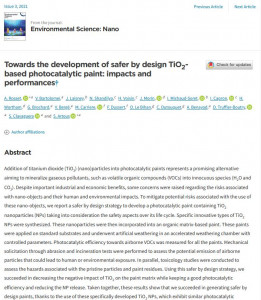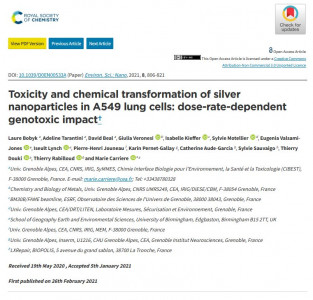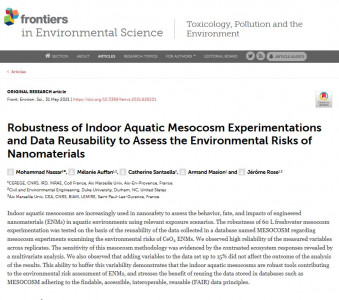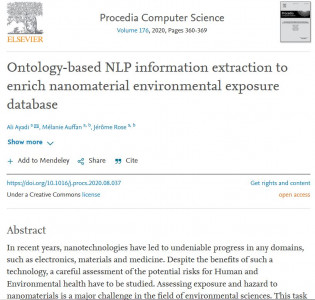PhD opportunity - Characterisation study of metals in sedimentary formation waters at université de Lorraine in GeoRessources laboratory.
Created in 2013, GeoRessources is a multidisciplinary laboratory devoted to the field of geological resources - their exploration and exploitation, including recovery, treatment and recycling stages, and their impact on society and the environment.
General context:
The knowledge of fluid composition in sedimentary basins is a key to understanding fluid-rock interaction during diagenesis. Sedimentary formation waters are known for transporting variable quantities of metals [1] and may be involved with the genesis of mineral deposits (Pb, Zn, Cu, U, Co, Ag…) [2]. In the frame of CO2 capture and storage projects in deep saline aquifers, it is expected to displace and extract saline nonpotable waters form those deep aquifers [3]. Beneficiation of those saline waters by recovery of economically highly valuable solutes (Li, Ni, V, Co…) is considered. However, the knowledge of the solute content of sedimentary formation waters is still insufficient.
Objectives:
The first objective will be to carry out a bibliographic survey and build a database of metal concentration in sedimentary formation waters. The main challenge will be to unravel the relationships between the following parameters : aquifer type (carbonate, siliciclastic…), temperature, salinity, pH, metal concentration and speciation… The second objective will be to characterise the metals in sedimentary formation waters for which the knowledge of concentration range is lacking. This will be done by in situ sampling of formation waters as fluid inclusions. Fluid inclusion analysis will consist of determining their salinity and trapping temperature (through microthermometry and Raman spectrometry) and their metal content (through laser ablation – inductively coupled plasma – mass spectrometry – LA-ICPMS). The main challenge will be to carry out high sensitivity analyses of trace elements in fluid inclusions using a high-resolution ICPMS apparatus.
Purpose:
The combination of the bibliographic survey and the new data will greatly contribute to the fundamental knowledge of fluid composition in sedimentary basins and the mechanisms of metal enrichment. Lastly, the results will help building a decision tool for feasibility of metal recovery from extracted waters in CO2 capture and storage projects in deep saline aquifers.
Desired profile:
The candidate must have a Master degree or equivalent, with a solid knowledge of geosciences. Ideally the candidate will have operational competencies in geochemical analysis (if possible fluid inclusion analysis) and geographic information systems (e.g. ArcGIS, QGIS), database management software (e.g. ACCESS) and geochemistry software (e.g. IoGAS, The Geochemist’s Workbench, PHREEQC).
Candidatures:
Send a CV, a letter of motivation and the name of two referees by email to the five contact persons above before March 31th.
For more details, download the document below.









